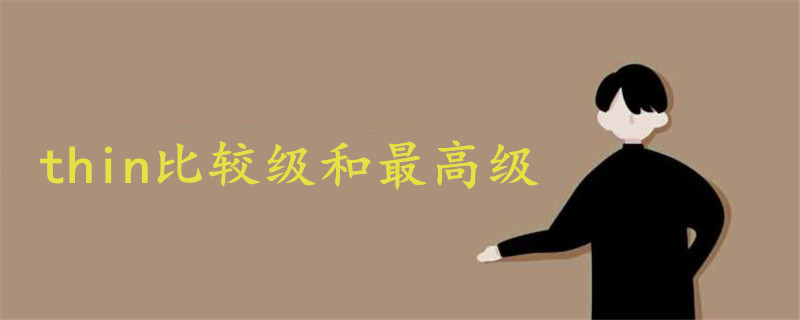thin的比较级和最高级分别为thinner和thinnest。thin可作名词、动词、形容词和副词,基本含义为“薄的”、“瘦的”、“稀疏的”、“使变淡”、“变少”、“细小部分”。

thin的中文含义及用法介绍
1、作为形容词时,意为薄的;细的;瘦的;稀少的;稀疏的。
例句:Cut the vegetables into thin strips.
把菜切成细条。
He was tall and thin, with dark hair.
他又高又瘦,满头黑发。
The sauce was thin and tasteless.
这酱汁淡而无味。
They fought their way through where the smoke was thinner.
他们挣扎着从烟雾稀薄的地方逃了出去。
Her thin voice trailed off into silence.
她的声音越来越弱直至毫无声息。
Their arguments all sound a little thin to me.
他们的论据我听起来都觉得有点儿缺乏说服力。
2、作为副词时,意为薄薄地。
例句:Don't spread it too thin.
不要涂得太薄。
I like my bread sliced thin.
我喜欢吃切成薄片的面包。
3、作为动词时,意为(掺水等)使稀薄,使变淡;变稀疏;变稀少;(使)变稀薄,变少。
例句:Thin the paint with water.
用水把颜料调稀。
The clouds thinned and the moon shone through.
云层渐稀,透出了月光。
Thin out the seedlings to about 10cm apart.
把秧苗间成相隔10厘米。
4、作为名词时,意为细小部分。
例句:Women who smoke risk giving birth to underweight babies.
抽烟的妇女生出的婴孩可能会体重不足。










